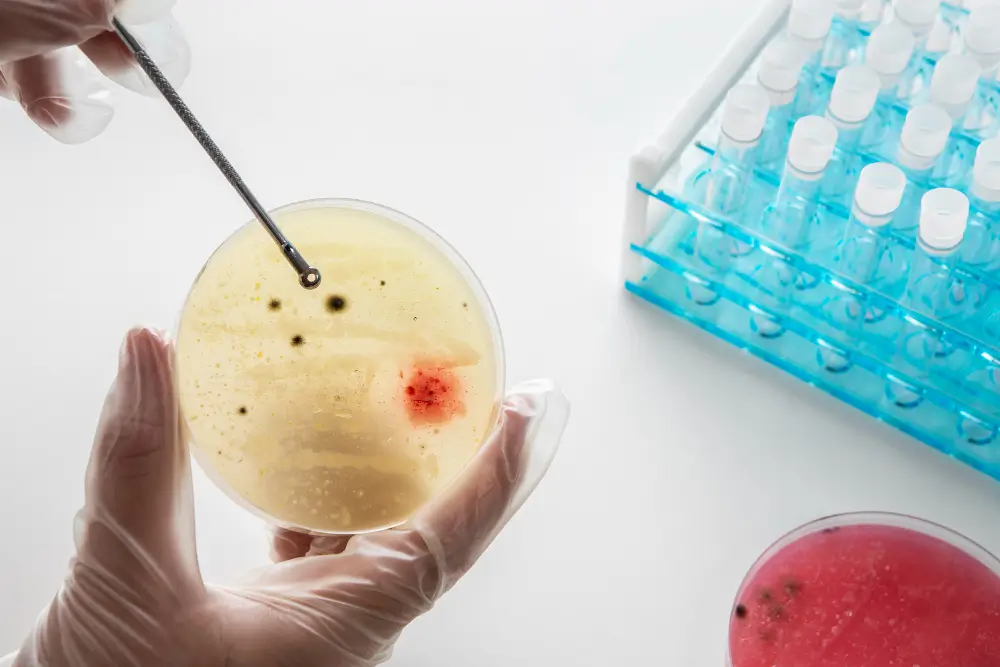
For intended parents pursuing surrogacy in Florida, understanding embryo preparation and IVF labs is crucial. IVF (in vitro fertilization) is a core part of gestational surrogacy, ensuring that embryos are healthy and ready for transfer into a surrogate.
With expert support from Surrogacy4All, parents can navigate each step confidently, ensuring a smooth and successful journey to parenthood.
Florida IVF and Embryo Step-by-Step
Step 1: Egg and Sperm Retrieval
Embryo preparation begins with retrieving eggs and sperm:
- Intended mother or egg donor undergoes ovarian stimulation
- Multiple eggs are retrieved through a minimally invasive procedure
- Sperm is collected from the intended father or donor
- Both gametes undergo quality testing to ensure optimal embryo creation
This step typically takes 2–3 weeks, depending on cycles and readiness.
Step 2: Embryo Creation
After retrieval, eggs and sperm are combined in the IVF lab to create embryos:
- Fertilization occurs under controlled laboratory conditions
- Embryos are cultured for 3–5 days, developing to the blastocyst stage
- Lab embryologists monitor growth, morphology, and overall health
- High-quality embryos are selected for transfer
Florida IVF labs maintain high success rates, ensuring intended parents have the best chance for pregnancy.
Step 3: Embryo Testing
Pre-implantation testing ensures the embryo’s genetic health:
- PGT (Preimplantation Genetic Testing) identifies chromosomal abnormalities
- Helps reduce the risk of miscarriage or genetic disorders
- Optional testing is available depending on intended parents’ medical history
Testing ensures a healthy pregnancy and reduces emotional and financial risks.
Step 4: Embryo Transfer
Once embryos are ready, transfer into the surrogate’s uterus occurs:
- Surrogate undergoes preparation, including hormone therapy
- Embryos are transferred carefully in a minimally invasive procedure
- Intended parents are updated immediately on the progress
- Pregnancy confirmation occurs 2 weeks post-transfer
This marks the beginning of the pregnancy journey and requires ongoing monitoring.
Step 5: Embryo Freezing and Storage
Not all embryos are transferred immediately. Surplus embryos may be:
- Cryopreserved (frozen) for future use
- Used in case of transfer failure
- Available for siblings if intended parents plan more children
Proper lab procedures ensure embryos remain viable for years.
IVF Lab Standards in Florida
Florida’s IVF labs follow strict standards:
- High-tech incubators and laboratory equipment
- Trained embryologists and fertility specialists
- Adherence to FDA and ASRM guidelines
- Regular quality control and monitoring
With Surrogacy4All, a physician-led surrogacy agency, intended parents gain access to top-rated, FDA-compliant IVF and embryo labs, ensuring safe embryo handling, strict medical standards, and consistently high success rates.
Tips for Intended Parents
- Ask about lab success rates and procedures
- Discuss genetic testing options and their benefits
- Plan finances, as IVF and testing may add to surrogacy costs
- Stay informed and communicate regularly with your surrogate and clinic
Proper preparation ensures a smooth IVF process and reduces stress during the surrogacy journey.
Final Thoughts
Understanding embryo preparation and IVF lab processes is essential for intended parents. Each step, from gamete retrieval to embryo transfer and testing, impacts the success of surrogacy.
Surrogacy4All provides guidance throughout IVF, lab coordination, and embryo handling, ensuring intended parents feel informed, confident, and supported at every stage.
Start your Florida surrogacy journey with confidence — call Surrogacy4All at (212) 661-7673 today.
FAQs:
Q1: How long does embryo preparation take in Florida IVF labs?
Ans: Embryo preparation, including egg and sperm retrieval, fertilization, and culture, typically takes 2–3 weeks before transfer.
Q2: What is pre-implantation genetic testing (PGT)?
Ans: PGT screens embryos for chromosomal abnormalities, helping reduce miscarriage risks and ensuring the embryo’s genetic health.
Q3: Can embryos be frozen for future use?
Ans: Yes. Surplus embryos are cryopreserved, allowing for future transfers or sibling pregnancies while maintaining viability.
Q4: How are Florida IVF labs regulated?
Ans: Labs follow FDA and ASRM guidelines, with strict quality control, trained embryologists, and high-tech equipment to ensure safety.
Q5: Does Surrogacy4All assist with embryo transfer coordination?
Ans: Absolutely. Surrogacy4All guides intended parents through IVF, embryo preparation, testing, and transfer to ensure a smooth, successful surrogacy process.

Dr. Pooja Patel
Dr. Pooja Patel is a Chief Surrogacy Coordinator at Surrogacy4all. She has 10 years of experience in Anesthesiology and critical care medicine.
She received her medical degree from Seth GS Medical College and K.E.M Hospital in India. She then completed an internship. She finished her Anesthesia residency at Grant Govt Medical College and JJ Group of Hospitals in India.





